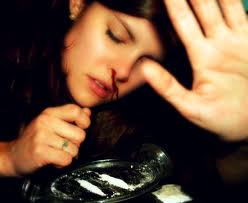Does My Loved One Need Cocaine Rehab?
While it may be hard to believe a loved one has an addiction to cocaine, the risk of becoming addicted to the drug runs considerably high. According to the National Institute on Drug Abuse, an estimated 1.9 million Americans used cocaine on a regular basis in 2008 with people aged 18 to 25 representing the highest number of active users.
Cocaine produces a stimulant effect that places considerable strain on brain and body processes when used on a continual basis. While users may intend to use the drug in moderation, the effects of cocaine on the brain make this difficult to do.
More oftentimes than not, someone who uses cocaine on a regular basis will, at some point require cocaine rehab in order to stop using the drug. Considering the damaging effects of cocaine on the body, recognizing the need for cocaine rehab in a loved one may well become apparent within a short period of time.
Cocaine and the Brain
Cocaine’s stimulant effects take shape as brain cell sites release large amounts of dopamine neurotransmitter chemicals. Normal levels of dopamine create an overall sense of contentment and well-being. Excess levels exacerbate this effect causing users to experience euphoria, surges in energy and feelings of complete confidence.
According to Bryn Mawr College, dopamine also plays a central role in regulating the brain’s learning and motivation mechanisms. Anything perceived as a positive experience triggers dopamine secretions in the brain. In effect, these experiences motivate a person’s overall behaviors from day to day. Cocaine’s ability to trigger dopamine secretions accounts for the drug’s high addiction potential.
Over time, cocaine use leaves users feeling “burned out” from overstimulation as well as from the strain placed on brain and body processes. In this state, users can only keep using the drug to ward off uncomfortable withdrawal effects. Cocaine rehab makes it possible for a person to break this cycle of abuse and addiction.
Cocaine Addiction Symptoms

If your loved one is doing cocaine and cannot stop, a rehab program can help.
Cocaine rehab programs specialize in treating the physical and psychological damage caused by repeated drug use. Much of this damage can be seen in the types of symptoms your loved one experiences from day to day. The types of treatment offered through cocaine rehab programs enable a person to break the dependency cycle that keeps an addiction intact.
In general, cocaine addiction symptoms may include –
- Unusual weight loss
- Inability to sleep
- Irritability
- Excess sweating
- Restlessness
- Impulsive behavior
- Angry outbursts
Through cocaine rehab treatment, a person comes face-to-face with the drug’s effects on their bodies, and in their lives.
Loss of Control
Once a cocaine addiction sets in, users become unable to control the urge to use. This loss of control affects most every area of a person’s life. For these reasons, cocaine rehab programs place a heavy emphasis on helping users reestablish their sense of self and purpose.
While physical cravings for cocaine can be powerful, it’s the mind’s dependence or perceived “need” for the drug that drives the addiction. Cocaine rehab treatment helps a person replace addiction-based patterns of thinking with a healthy, drug-free mindset. Once a person reaches this point, staying engaged in the recovery process is essential to maintaining abstinence for the long-term.